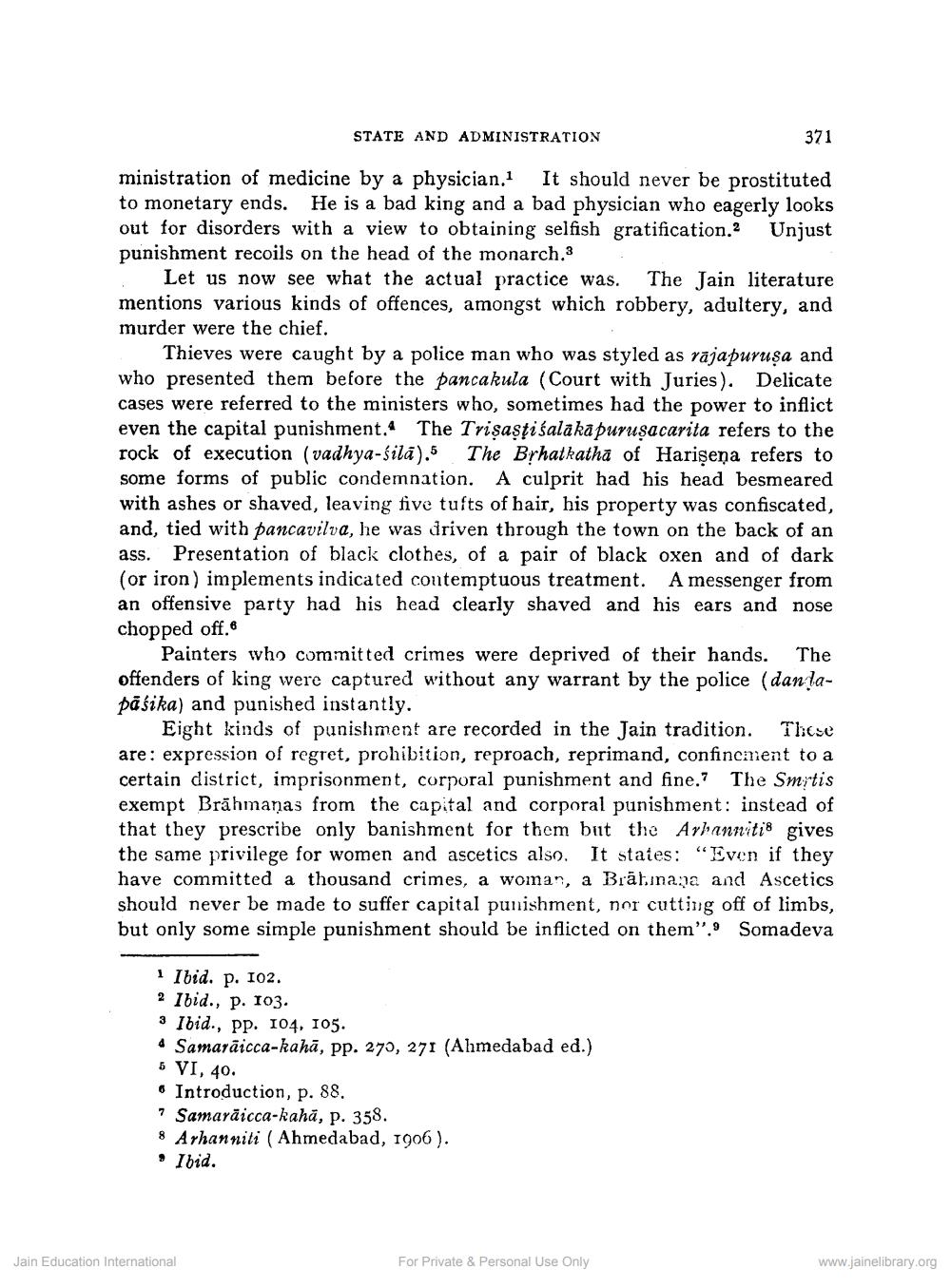________________
STATE AND ADMINISTRATION
371
ministration of medicine by a physician. It should never be prostituted to monetary ends. He is a bad king and a bad physician who eagerly looks out for disorders with a view to obtaining selfish gratification.2 Unjust punishment recoils on the head of the monarch.3
Let us now see what the actual practice was. The Jain literature mentions various kinds of offences, amongst which robbery, adultery, and murder were the chief.
Thieves were caught by a police man who was styled as rajapurusa and who presented them before the pancakula (Court with Juries). Delicate cases were referred to the ministers who, sometimes had the power to inflict even the capital punishment. The Trişaşți śalaka puruşacarita refers to the rock of execution (vadhya-silā). The Brhatkatha of Harişeņa refers to some forms of public condemnation. A culprit had his head besmeared with ashes or shaved, leaving five tufts of hair, his property was confiscated, and, tied with pancavilva, he was driven through the town on the back of an ass. Presentation of black clothes, of a pair of black oxen and of dark (or iron) implements indicated contemptuous treatment. A messenger from an offensive party had his head clearly shaved and his ears and nose chopped off.
Painters who committed crimes were deprived of their hands. The offenders of king were captured without any warrant by the police (dan lapāśika) and punished instantly.
Eight kinds of punishment are recorded in the Jain tradition. These are: expression of regret, prohibition, reproach, reprimand, confinement to a certain district, imprisonment, corporal punishment and fine.7 The Smrtis exempt Brāhmaṇas from the capital and corporal punishment: instead of that they prescribe only banishment for them but the Ayhannitis gives the same privilege for women and ascetics also. It staies: "Even if they have committed a thousand crimes, a woman, a Brālinara and Ascetics should never be made to suffer capital punishment, nor cutting off of limbs, but only some simple punishment should be inflicted on them”.9 Somadeva
1 Ibid. p. 102. 2 Ibid., p. 103. 3 Ibid., pp. 104, 105.
Samarāicca-kahā, pp. 270, 271 (Ahmedabad ed.) 5 VI, 40. • Introduction, p. 88. ? Samarāicca-kahā, p. 358. 8 Arhanniti ( Ahmedabad, 1906). • Ibid.
Jain Education International
For Private & Personal Use Only
www.jainelibrary.org




